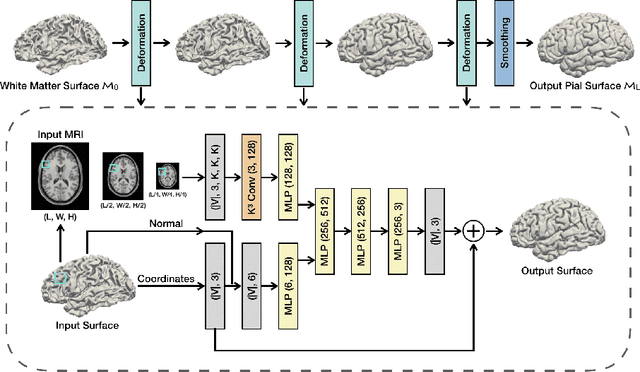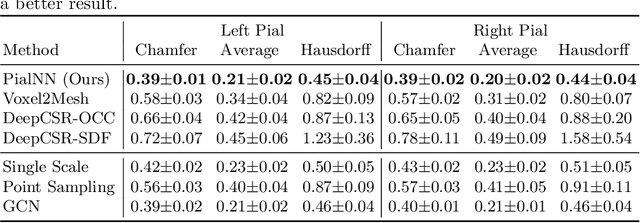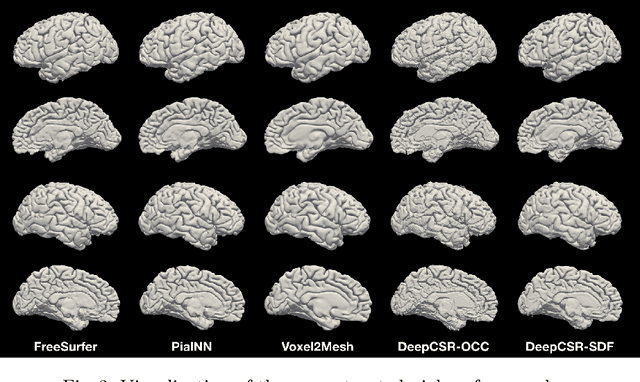PialNN: A Fast Deep Learning Framework for Cortical Pial Surface Reconstruction
Paper and Code
Sep 06, 2021



Traditional cortical surface reconstruction is time consuming and limited by the resolution of brain Magnetic Resonance Imaging (MRI). In this work, we introduce Pial Neural Network (PialNN), a 3D deep learning framework for pial surface reconstruction. PialNN is trained end-to-end to deform an initial white matter surface to a target pial surface by a sequence of learned deformation blocks. A local convolutional operation is incorporated in each block to capture the multi-scale MRI information of each vertex and its neighborhood. This is fast and memory-efficient, which allows reconstructing a pial surface mesh with 150k vertices in one second. The performance is evaluated on the Human Connectome Project (HCP) dataset including T1-weighted MRI scans of 300 subjects. The experimental results demonstrate that PialNN reduces the geometric error of the predicted pial surface by 30% compared to state-of-the-art deep learning approaches.
 Add to Chrome
Add to Chrome Add to Firefox
Add to Firefox Add to Edge
Add to Edge